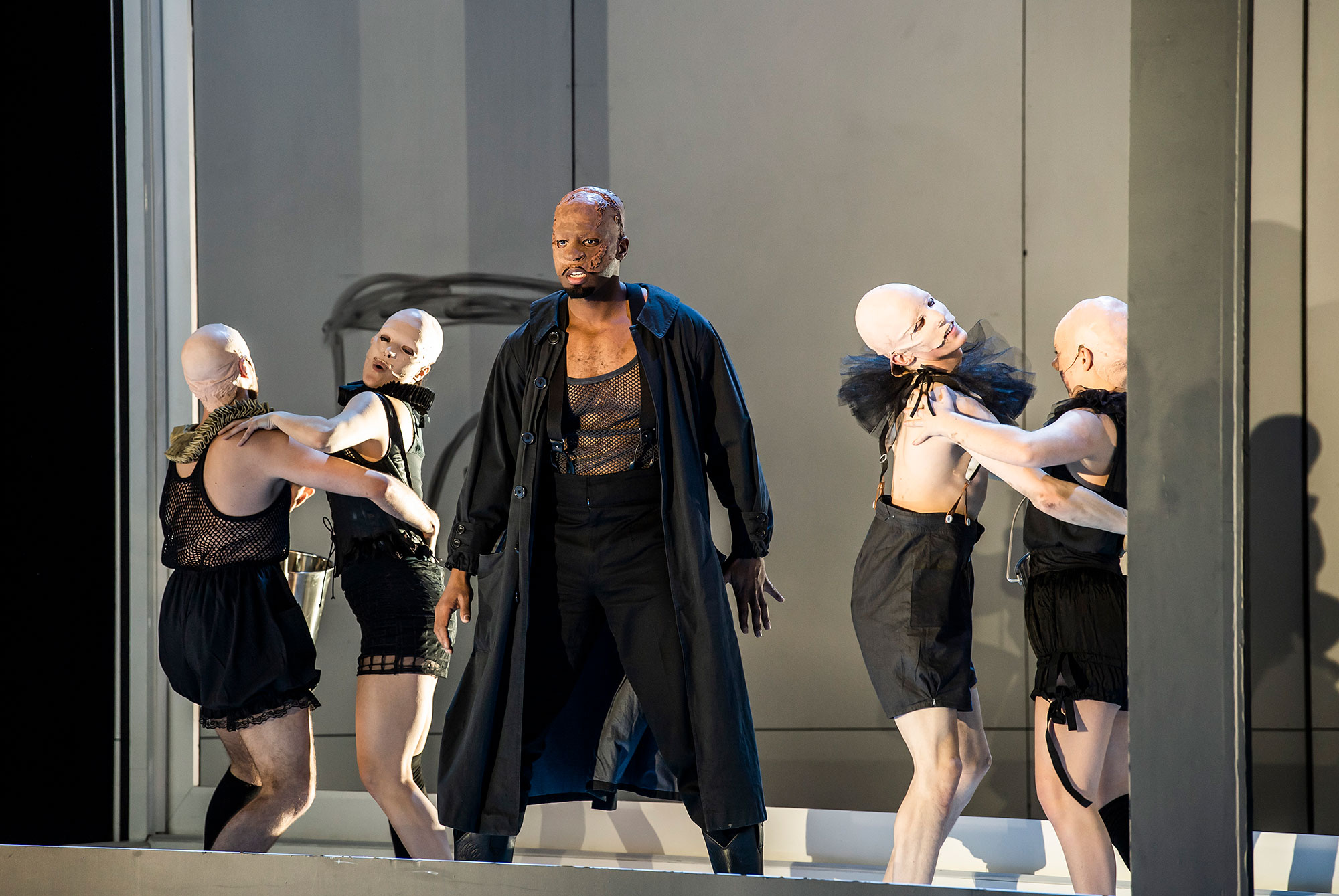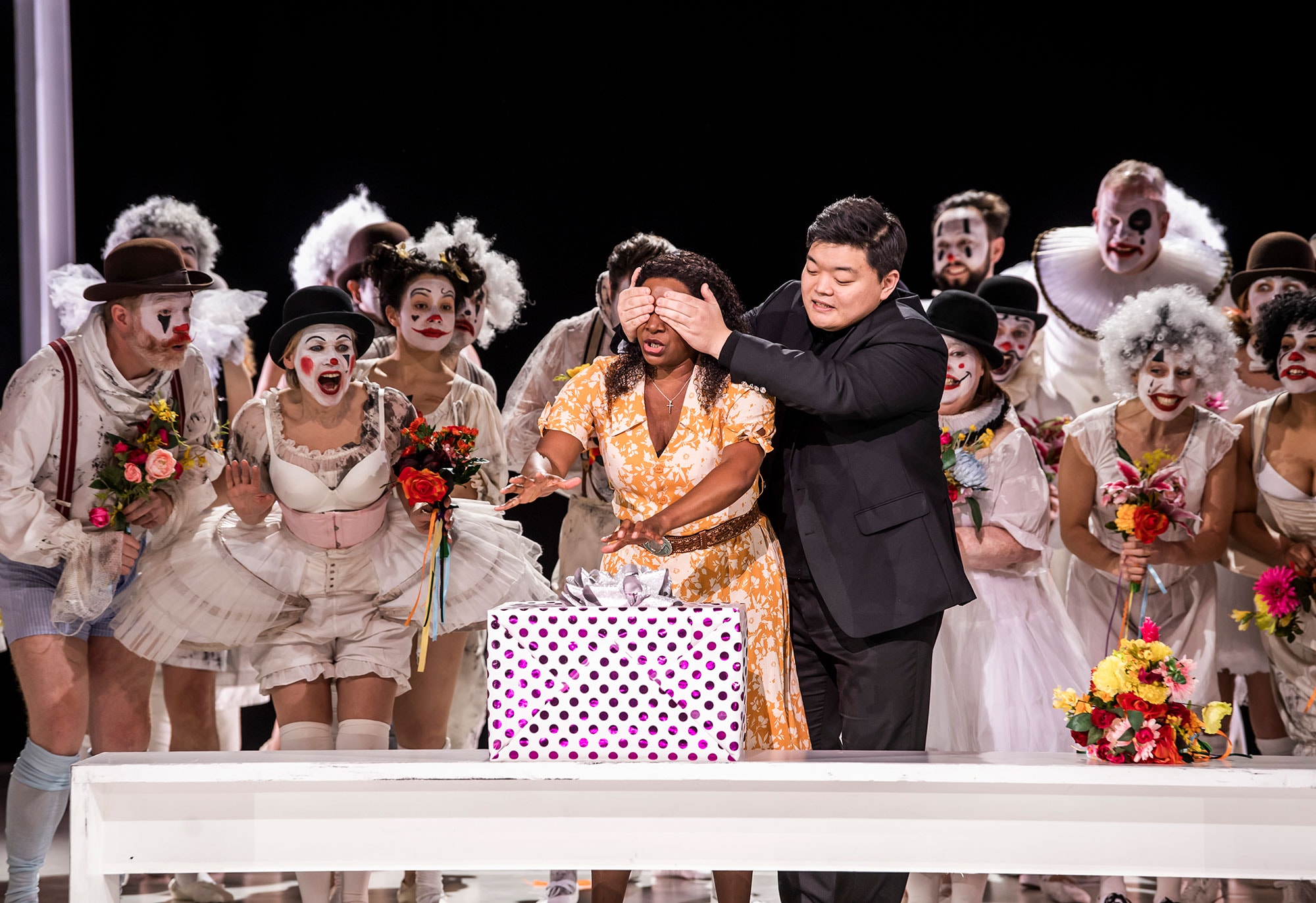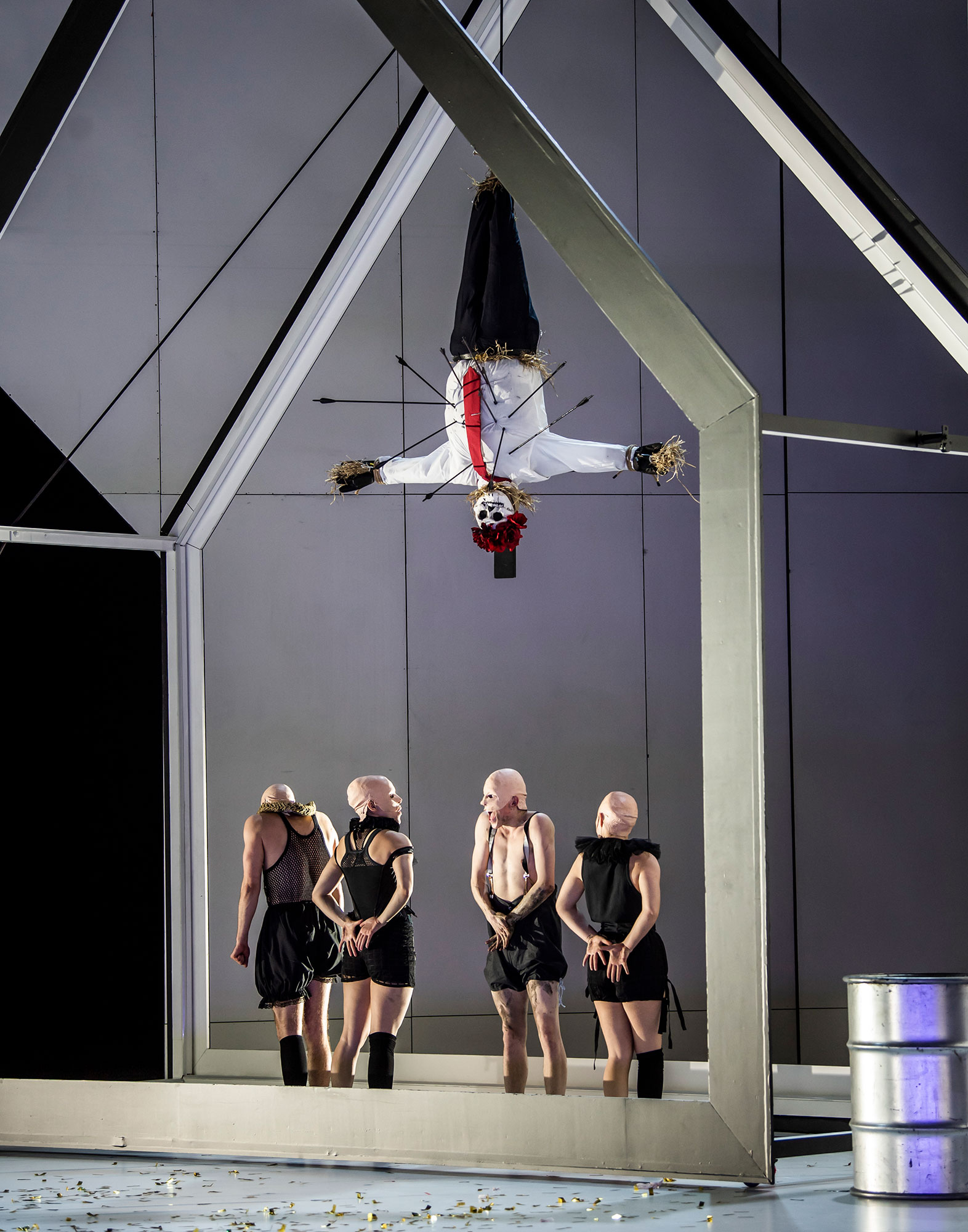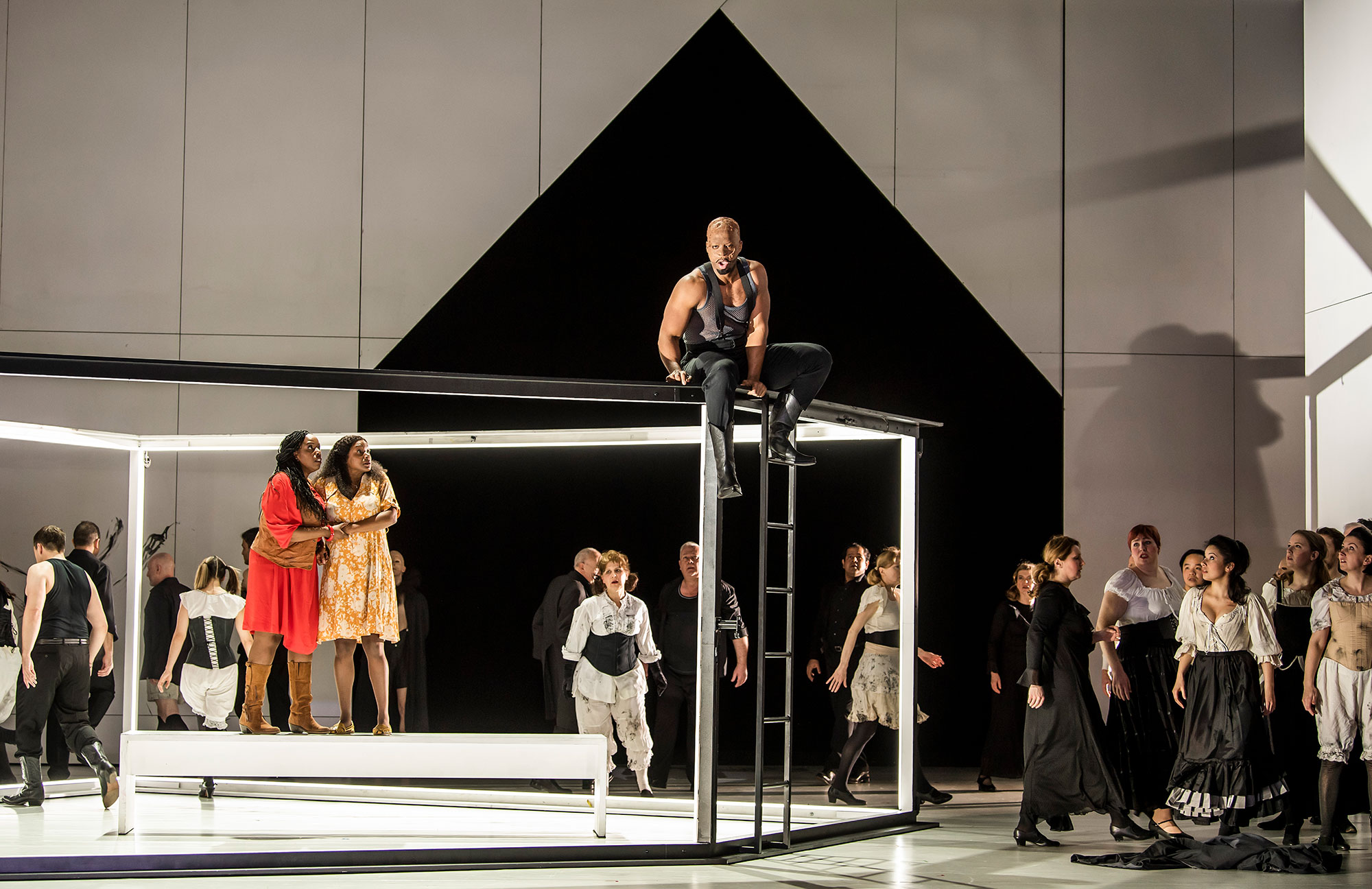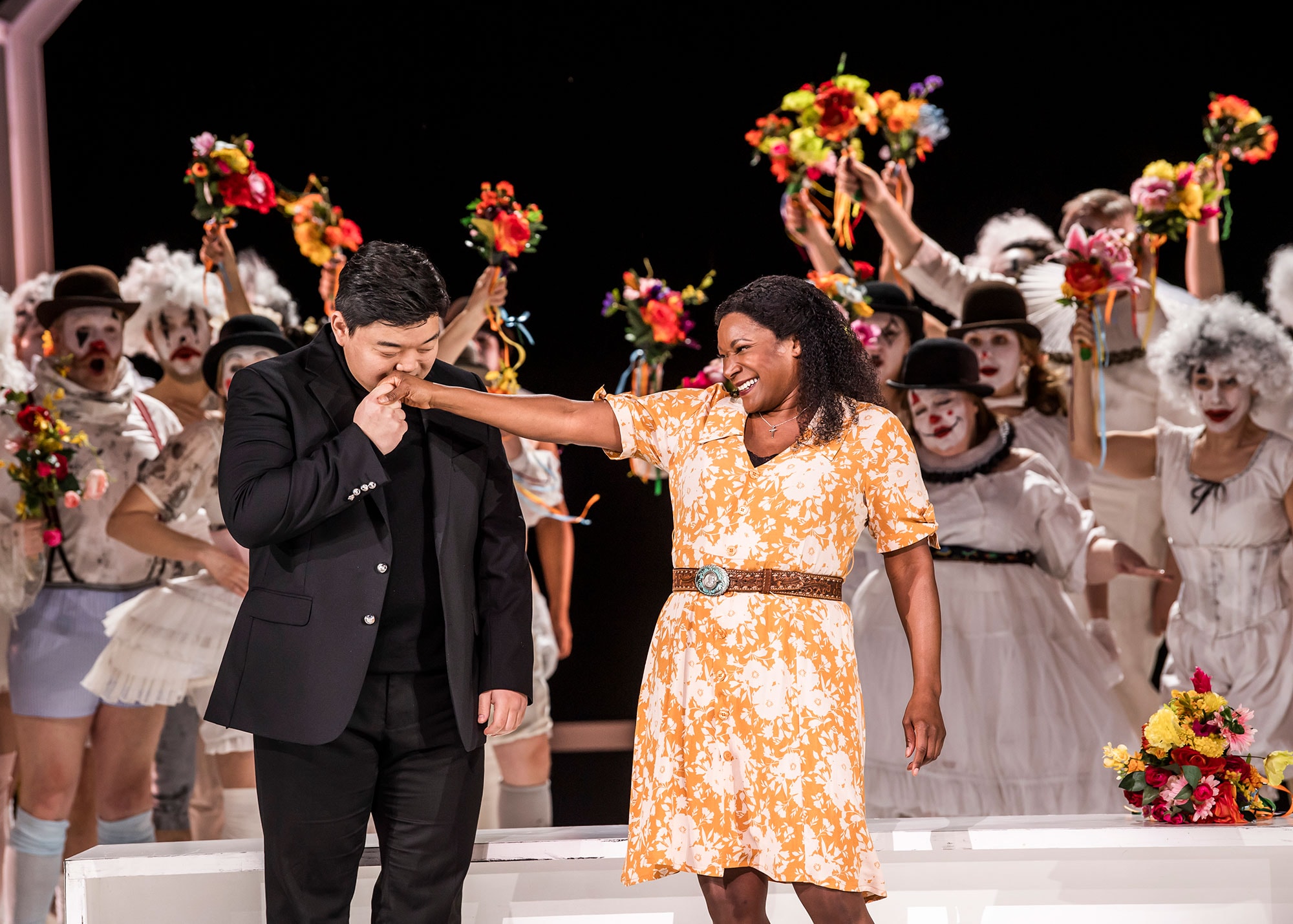An introduction to Luisa Miller
Here’s everything you need to know about ENO’s production of Verdi’s Luisa Miller.
It’s a tragic opera that centres on a doomed relationship
First performed in 1849, Luisa Miller is Verdi’s tragedy based on a play by German playwright Friedrich Schiller.
Luisa falls in love with Rodolfo, unaware he is really the son of a powerful Count. When Rodolfo’s father learns his son is in love with a peasant, he does all in his power to destroy the relationship, with tragic consequences.
Photo Gallery
Verdi is the nineteenth century’s leading opera composer
In the first half of the nineteenth-century, Italian opera was spearheaded by three composers: Rossini, Bellini and Donizetti. In the second half, only one man dominated the scene.
When the last of the three great composers died in 1868, thing weren’t looking good for Italian opera. That is until Giuseppe Verdi came on the scene.
From 1845, until his death in 1901, Verdi revitalised Italian classical music. This was especially thanks to his most-famous trio of works, Rigoletto (1851) Il trovatore (1853), and La traviata (1853)
Read our beginner’s guide to Verdi
The opera helped Verdi explore a composing style he would go on to perfect with La traviata
Luisa Miller is the last opera Verdi composed before his famous three, and is generally considered as the first opera in his ‘middle period’.
Verdi used a more refined composing style with Luisa Miller than the opera’s predecessors. Because of this, Luisa Miller is generally considered as the proving ground for the polished musical style he perfected four years later with one of his greatest works, La traviata.
Luisa Miller Teaser Trailer
Video
Miller's script was adapted to please conservative censors
It was librettist, Salvadore Cammarano’s idea to give operatic treatment to Schiller’s play, Intrigue and Love (Kabale und Liebe).
Recognise the librettist’s name? He also wrote the words for Donizetti’s Lucia di Lammermoor.
To avoid the interests of the strict censors, Cammarano adapted the story. He chose to remove much of the political ‘intrigue’ of the bourgeoisie tragedy, and focused on the ‘love’ aspect.
Cammarano changed the opera’s male lead from Ferdinand to Rodolfo, distinguishing it from Ferdinand I, the King of Naples. The libretto notably cuts ‘Lady Milford’, the Prince’s mistress, knowing her character wouldn’t have been approved by the censors. She is replaced by ‘Federica’, the Count’s niece, who is betrothed to Rodolfo.
Our contemporary production is directed by Barbora Horáková
Winner of the International Opera Awards Newcomer prize, Horáková’s modern production uses stark, white space to explore the tragic themes within the opera.
You can see Verdi’s Luisa Miller at the London Coliseum from 12 Feb – 06 Mar 2020. Find out more and book tickets below.
Video



